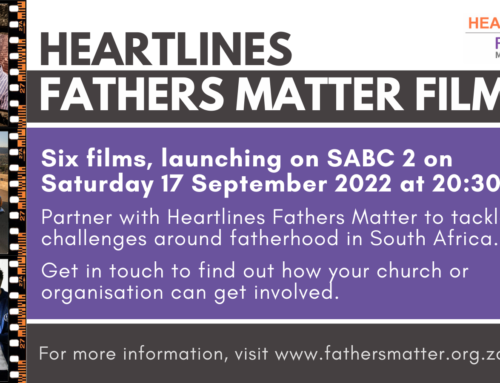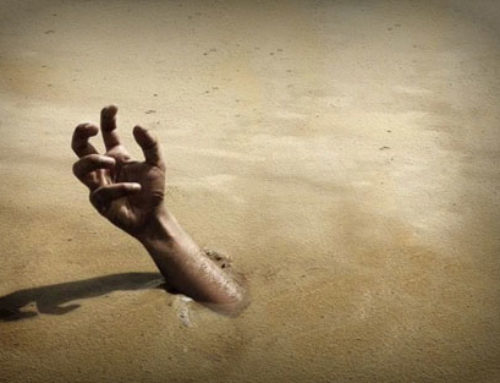We caught a glimpse of this in the #IAmStellenbosch campaign where a group of well-meaning students drew up some posters highlighting something about them that made them unique or different to the stereotype that their skin colour or background might typically suggest. It received a huge backlash from the media and people of all races across the country for a number of reasons. Possibly the biggest one was that once again we saw a race problem and we made it about us.
“But it wasn’t just white people doing it. It was people of all races.” That is true, although even a number of those people from other races were buying into the narrative by describing themselves as “non-white” as if “white” is the standard we compare everything to. That must have been heart-breaking for so many people to see.
This morning i was trying to think what post to write about trying to be an ally in the ongoing race conversation and journey and i had an idea of how it could have looked in Americaland around the time of setting slaves free:
“We realise we have been wrong. We should never have enslaved people. We have now freed them. We are getting it right now. How do we continue life now that the people who used to serve us are gone?”
Do you hear all the ‘we’ in there? The ‘I’ language? The ‘This-Is-Once-More-Still-About-Me’?
i am learning that this is one of the key pieces of moving forwards in South Africa. Realising that it CANNOT any longer be about me. About us. About white people. We dominated the narrative for so long. It is time the story was shifted to and told by someone else.
We need to learn to ACTIVELY LISTEN.
Two of the ideas from the list of Ten Communication Commandments from the previous post i find particularly helpful in this:
Thou shalt listen actively, ask questions, and refrain from giving advice.
If you hear an idea that is new or strange, try it on for size.
For too long, white people were setting the pace, leading the way, creating the history [the one i learnt at school was a very biased one-sided affair] and in many ways attempting to be the standard [beauty magazines, television series, movies, sports stars] that we expected others to try and attain or adulate. It is long overdue time for us to let someone else have that space and to sincerely pay attention to what they may have to say.
As a white person we tend to egg-shell walk around these things and say them nicely because we don’t want to offend and we want to keep it all civil and YOU KNOW WHAT? We did offend. Apartheid was offensive. Wanting a Get-Out-Of-Apartheid-Free card that let’s us move forwards as if nothing happened and that that nothing had no consequences is offensive and unkind and oblivious, so to put it in more direct, less comfortable language we need to learn to SHUT UP!
“Ah, Brett man, that is unnecessarily harsh. You need to chill and go easy on us.”
No, i think the time for that may have passed. If you have not yet realised that there is still a need for some serious bridge-building in this country, then you need to catch up. But if you have and are there, then this is an aspect that must take centre stage. We need to learn to listen.
Which all feels a little bit like a paradox. Because in the #IAmStellenbosch post i was suggesting that white people need to speak up. And that is true. Here is how i see it:
# Where there are people not getting it and living in continued ignorance or misinformation, it is the role of us as white people to speak into that. As ‘Suits’ put it so eloquently last night, white people need to help our own “get their shit together”. Many of us are tired of trying to do this and frustrated with attempts at helping white people understand ‘white privilege’ and unpacking the absence of any kind of ‘white guilt’ and some have given up and decided only to continue working with those who get it and want to make a difference. But it should not be up to the oppressed or marginalised to have to explain this to us any more. Except where there is authentic relationship and they are holding us accountable.
# Where the conversation of moving forwards and what South Africa looks like and how reparation and restitution and reconciliation need to take place, that is an area where we need to be quiet and listen and follow people of colour in this area. i’m not saying we must not be a part of those conversations, but i am suggesting that we should not be the ones leading them. And that we need to err on keeping quiet.
Thou shalt listen actively, ask questions, and refrain from giving advice.
If you hear an idea that is new or strange, try it on for size.
How does the idea of listening sit with you? Is this something you feel you do well or could do better at? What other ideas do you think could help make us a good ally in these conversations about race?








[…] [For the next piece on Handing Over The Mic, click here] […]
[…] Part 2: Handing Over The Mic […]
Thank you for this conversation as well as the other related issues that you’ve explored on your blog. I have come to a place of recognizing and agreeing with the concept of white privilege. I get how the legacy of apartheid continues to prejudice black people, regardless of the fact that apartheid is officially over and a black government is in place. I’m wrestling with the question of – how do I live justly in a society that privileges me because of my skin colour. It’s tricky to know what to ‘do’. The more I read from different black writers the more confused I get. Some say whites should get out of their comfort zones and help those less fortunate; others say white people are patronizing and re-enforce the apartheid-bred inferiority-complex that many black people have when white people come to ‘help’. There are other examples of contradicting expectations of white people’s role in the new (aka 20 year old) SA. Your call to listening is vital. Listen. Finding the humility to say ‘I don’t know how to fix this, or what to do’ and let me learn from you. I heard a brilliant TED Talk that challenged how we talk about ending poverty and proposed that -rather than come in to fix poverty- rather support the initiatives that poor people have started themselves. This resonates with me – to get behind those who are rising up out of economic oppression and/or racial oppression. Work to amplify their voices. Work to provide support to their initiative without telling them ‘how’ to do it better (which is in fact telling them how to do it my way – which may work well in my circumstances but not theirs). So being comfortable with things being done or said in a way that feels foreign/uncomfortable/not-the-way-I-would-do-it. An example is the RhodesMustFall or OpenStellenbosch, as white people who are seeking to be allies, we need to listen and be ok with the way these students have chosen to express their anger. And get behind the message. And help fellow white people to understand. This is all what you are doing in your Facebook and Blog posts. And we need to be doing that in our everyday life too. In our friendships and families where we can have honest chats.
I’ve noticed that not many have picked up on your call to ‘engage in being an ally.’ And I’ve noticed on my own FB page that the response goes quiet when this topic is raised. It’s got me thinking about how to reach out to white friends on this topic more effectively. What makes people ‘tired’ of this topic? What are the ‘blind spots’ that prevent people from seeing why your question is so crucial to the future of our country? What lenses do our white friends (and me included) wear that make race divisions and white privilege and black pain just soooo normal – and therefore not really questioned? What strongholds grip my own heart and life which make it hard for me to give more, hand over power and work towards making our society equal? Ultimately I’ve come to realise that engaging fellow white friends is really a spiritual matter, a God-given revelation is required, a HolySpirit opening-of-eyes is needed. It is not a matter of educating or making people aware, as if it is lack of knowledge that is the stumbling block. Rather I (we) need to be praying and fasting for God’s freeing power to soothe open those closed eyes and hardened hearts. Without judging, knowing that our white friends (like us) have been floating around in this polluted ‘sea’ drinking in the lies telling us that black people are inferior and to be feared, and white people are superior and have all the solutions to the worlds problems.
I didn’t plan such a long reply. Hope it makes sense as I’ve been writing it on my phone. Am praying for you Brett – that God will guide you clearly and specifically as how to use your platform to shine His light on these issues of great injustice.
Thank you so much Jacqui. Appreciate you taking the time and so good to see you engaging on these things and just want to encourage you not to give up. It feels like this thing will happen one by one more than in a flood and so keep posting and sharing the articles and posts you think people need to read and be shaped and challenged by and keep sharing stories from your life which means you have to frat be living those stories of course – deepen your friendships with people of colour so that your life can be enriched and you can have safe places to explore all this stuff although not comfortable ones. Create spaces for conversation whether online or around the dinner table or wherever and let it be awkward and uncomfortable and be willing to be unfollowed and defriended and maybe more because change is happening and we need to keep pushing on… In love…